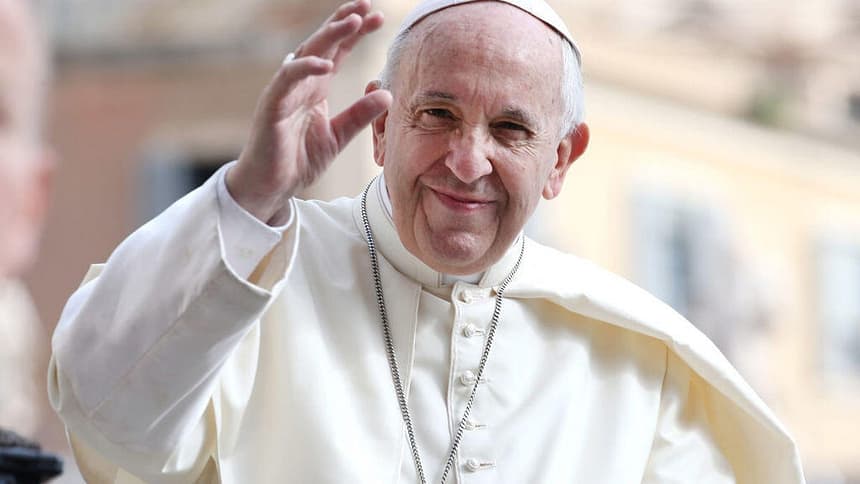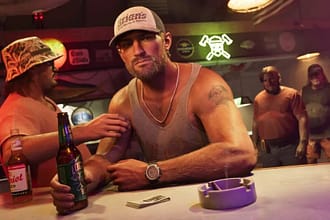The papal conclave is underway in Rome, and black smoke issuing from the Sistine Chapel chimney on Wednesday indicates a vote has been taken, and no pope has yet been chosen.
Pope Francis, who died on April 21 at age 88, has been laid to rest at the Papal Basilica of St. Mary Major in Rome. Now, the cardinals of the Roman Catholic Church are voting for a successor in an assembly known as a conclave. Only cardinals younger than 80 years old are eligible to vote in a papal election. While 135 cardinals come in under this age requirement, two withdrew from the voting for health reasons, so 133 will vote.
The word “conclave” is familiar to many non-Catholics now, thanks to the Hollywood feature film Conclave, which was released in 2024 and is available to watch on streaming services.
The Vatican News, the official communications outlet of the Vatican, posted on X on Wednesday that all nonessential personnel have left the Sistine Chapel, leaving the Cardinals to vote in private. The account shared a video of the chapel’s heavy doors being dramatically shut. Later, the Vatican’s YouTube channel showed black smoke, meaning no pope has been chosen in the most recent ballot.
‘Extra omnes’, ‘everyone out’.
The doors of the Sistine Chapel close with this proclamation, and all non-essential personnel exit.
Now that they have left, Cardinal Raniero Cantalamessa will deliver a meditation, inviting the cardinals into a space of prayer and discernment… pic.twitter.com/tY5jrtqvGi— Vatican News (@VaticanNews) May 7, 2025
Read more: Where to Watch Conclave, the Vatican Thriller About Electing a New Pope
How to follow the conclave
There’s no way to watch the real papal conclave, as it’s conducted inside the walls of the Sistine Chapel and is private. The movie Conclave, while entertaining and well-reviewed, is a fictional version. But the major news networks are covering any news about the event.
Perhaps the most interesting way to follow along is to tune in to the Vatican’s own YouTube channel, which is streaming a live webcam from St. Peter’s Square in Rome, the large public square outside the Vatican buildings. That’s where you can see the black smoke as ballots are burned.
The news networks are also creating innovative ways for people to follow the conclave. NBC News is also offering a smoke cam, a webcam focused on the Sistine Chapel chimney where white smoke will eventually reveal when a pope has been chosen.
CNN has created a 3D visualization of what the conclave will look like.
USA Today has set up a YouTube channel to stream coverage of the conclave, from 6 a.m. to 9 p.m. ET (3 a.m. to 6 a.m. PT) on Wednesday.
CBS broadcast a special report on the conclave anchored by Norah O’Donnell and Tony Dokoupil, beginning at 10:30 a.m. ET on Wednesday.
Who are the contenders?
Several cardinals are considered potential strong candidates for the papacy. Cardinal Matteo Zuppi of Italy is noted for his diplomatic efforts and alignment with Pope Francis’ vision. Cardinal Luis Tagle from the Philippines is also a prominent figure, recognized for his advocacy for social justice and alleviation of poverty. And Cardinal Peter Turkson of Ghana is being discussed as a possible first African pope in the modern era.
Look for the white smoke
After the cardinals vote and their ballots are counted, the ballots are burned and chemicals are added to the flames to produce black smoke if there’s no majority. When a new pope has been selected, chemicals will be added to the flames to produce white smoke. Crowds gather in St. Peter’s Square to watch for the results.
In the movie, Ralph Fiennes stars as Cardinal Thomas Lawrence, who spearheads the election of the next pope while investigating rumors about potential candidates. The film is based on the 2016 novel by Robert Harris and is fictional — though it does represent some of the events of how actual papal conclaves take place. In March, the film won the Academy Award for best adapted screenplay.
The voting takes as long as it takes
Two-thirds of the cardinals’ votes are required to elect the next pope. The conclave occurs behind closed doors, and the vote tally is never made public.
The conclave can take days or even weeks to conclude. In the 13th century, it reportedly took three years to choose a pope, but modern conclaves have been much shorter. Pope Francis was elected in 2013 on the fifth ballot on the second day of the conclave.
There can only be two rounds of voting per day, and a candidate needs two-thirds of the votes, plus one to be elected. If that majority isn’t reached after three days of voting, the process pauses so the cardinals can pray and discuss their options, CBS News reports.
No, Trump will not be pope
Any man who is a baptized Catholic can technically be elected pope, but in reality, the next pope is chosen from the College of Cardinals. Cardinals are senior members of the clergy and are selected by the pope to serve as advisors to him.
Days before Pope Francis’ funeral, US President Donald Trump told reporters, apparently jokingly, “I’d like to be pope.” But as a non-Catholic, Trump is not eligible.
Trump also shared an AI-generated image of himself as pope on his Truth Social social media site last week. The official White House account reposted the image on X. Many did not find the image funny.
“We just buried our beloved Pope Francis and the cardinals are about to enter a solemn conclave to elect a new successor of St. Peter,” the New York State Catholic Conference wrote on X. “Do not mock us.”
Trump’s vice president, J.D. Vance, wrote on X that he was OK with the image of Trump as pope. Vance was not raised Catholic but was baptized into the faith in 2019. “As a general rule, I’m fine with people telling jokes,” Vance wrote.






